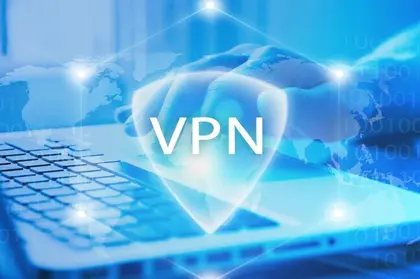As previous attempts to ban virtual private networks (VPNs) in Russia to limit internet access have borne no fruits, Moscow now introduced a ban on VPN advertisements instead, starting March 1.
Under the new law, advertisements for some VPN services, namely “information about ways, methods of providing access to information resources and (or) information and telecommunication networks, access to which is limited on the territory of the Russian Federation,” have now been banned in Russia.
JOIN US ON TELEGRAM
Follow our coverage of the war on the @Kyivpost_official.
The move followed Moscow’s previous failed attempts to ban VPN services as new ones often emerge following the blockade of existing ones.
The ban does not apply to all VPN services but only to those considered non-compliant with Moscow’s policies. It is also legal to use VPN services, with no criminal or administrative penalties, under the current legislation in Russia.
The Federal Service for Supervision of Communications, Information Technology and Mass Media (Roskomnadzor) signed the order on Nov. 8, 2023, which was then published on Dec. 1 and is valid until Sept. 1, 2029.
Following the ban, Anton Gorelkin, deputy chairman of the Russian State Duma Committee on Information Policy, Information Technologies and Communications, entertained the possibility of banning Wikipedia as well on March 3 since it contained instructions on VPN usage.
Russia has launched its own version of Wikipedia following the full-scale invasion of Ukraine to maintain a tighter grip on the domestic information space, and the proposal to ban Wikipedia altogether would be a logical continuation of Moscow’s attempt to further restrict information flow.

Russia Used Social Media to Meddle in 2024’s US Presidential Election
What is a VPN?
VPN is a technology that allows users to create an encrypted connection to mask their online identities and potentially bypass restrictions to certain websites.
While some users can use VPN to bypass geographical restrictions set by certain online services (such as Netflix and Disney+), users in Russia and other authoritarian states often rely on the technology to access foreign information – such as the war in Ukraine – that is otherwise censored locally.
The technology also poses certain risks, however, as some free VPN services have been known to spy on users, which is the Kremlin’s claim behind the ban.
Moscow’s History of Internet Restrictions
VPN Mentor, a site that reviews VPN services, outlined the implication of Moscow’s latest moves and its history of internet restrictions.
2000–2001: First Restrictions
The Kremlin began to introduce measures to control internet usage.
2012: Internet Blacklist Law
The Kremlin created a law to allow the blacklisting of websites without a court order – or any real oversight – to deem the website unacceptable.
2014: Blogger Registration Law
Influential bloggers – or any person whose online presence or website draws more than 3,000 daily readers – have to register with the government, disclose personal information, and provide technical details to the principal security agency of Russia.
2015: Data Localization Law
Russia required internet companies (both foreign and domestic) to store the personal data of Russian users on servers located within the country. This law also required the information to be accessible to authorities, effectively giving the state control over user data.
2016: “Yarovaya Law” also known as “Big Brother Law”
This law mandates that internet service providers (ISPs) store users’ communications data for up to three years and requires them to provide full access to security agencies, including the installation of surveillance hardware and software. The law also banned search engines from displaying results for blacklisted websites.
2017: Instant Messaging Services Must Share Encryption Keys
The law requires all instant messaging services operating in Russia to provide the FSB with access to users’ encrypted messages. In addition, all users of messaging apps had to be identified through the registration of the mobile provider.
2018: VPN and Proxy Ban
Russia passed a law banning the use of VPNs and proxy servers, both of which allow users to access blocked content. The law is supposed to take effect on March 1, 2024, nearly six years after it was first passed. The delay could be due to the difficulty of the technical capabilities needed to fully block all VPN services.
2019: “Sovereign Internet” Law
This law gave the government the authority to centralize state control over the country’s internet infrastructure in the event of perceived threats to national security. The legislation, which was enacted that same year, also set fines for spreading “disrespectful” content about the government and state officials online, further restricting freedom of speech.
2020-2021: Control Over Social Media and Fines
Under these laws, authorities could fine social media platforms for failing to delete content deemed illegal. This mandate put pressure on platforms to comply with state censorship requisites, including requirements to establish legal entities, store user data locally, and make said data accessible to authorities.
“Although censorship and surveillance measures may be implemented under the guise of national security or antiterrorism, their implementation shows there is a real fear inside of Russia over the freedom of information, expression, communication, and thought,” said Jeremiah Fowler, a cybersecurity researcher and the author of the report.
The full report from VPN Mentor is available here.
You can also highlight the text and press Ctrl + Enter






